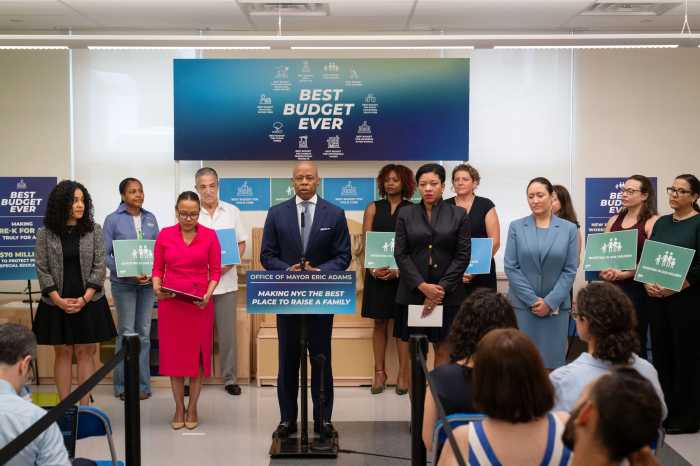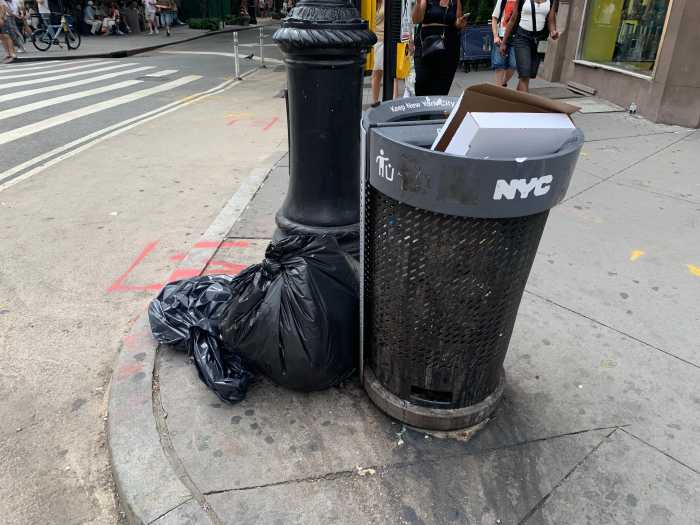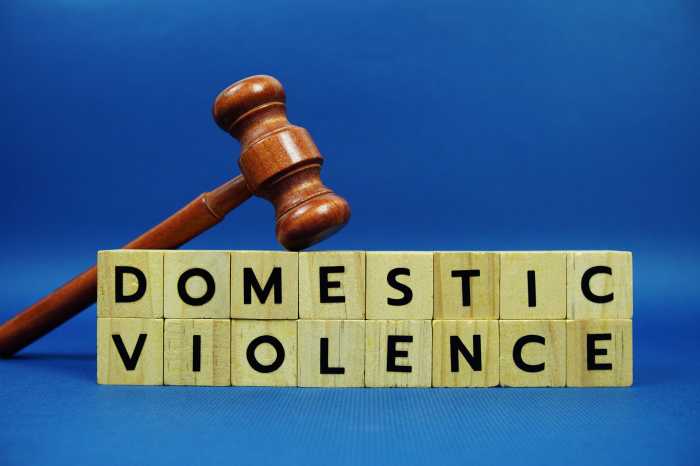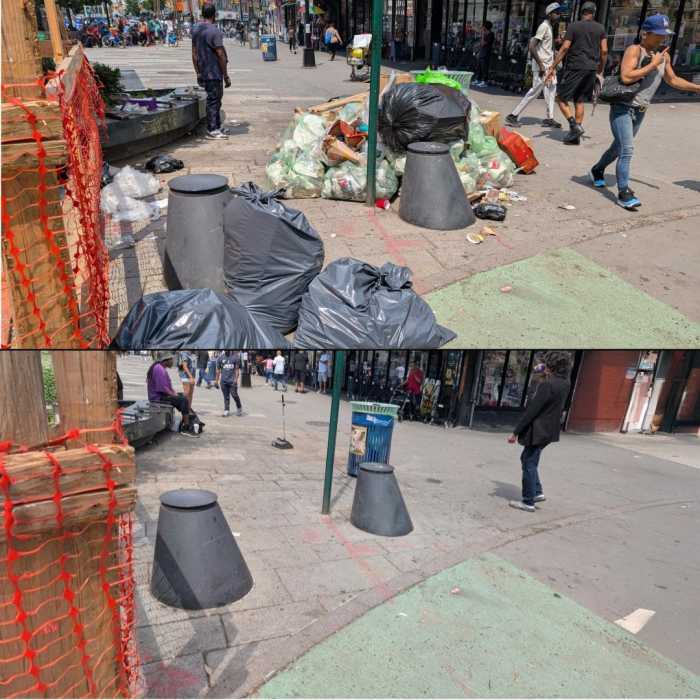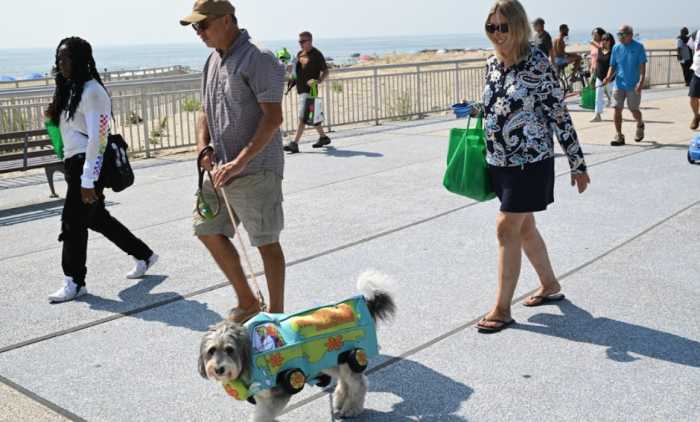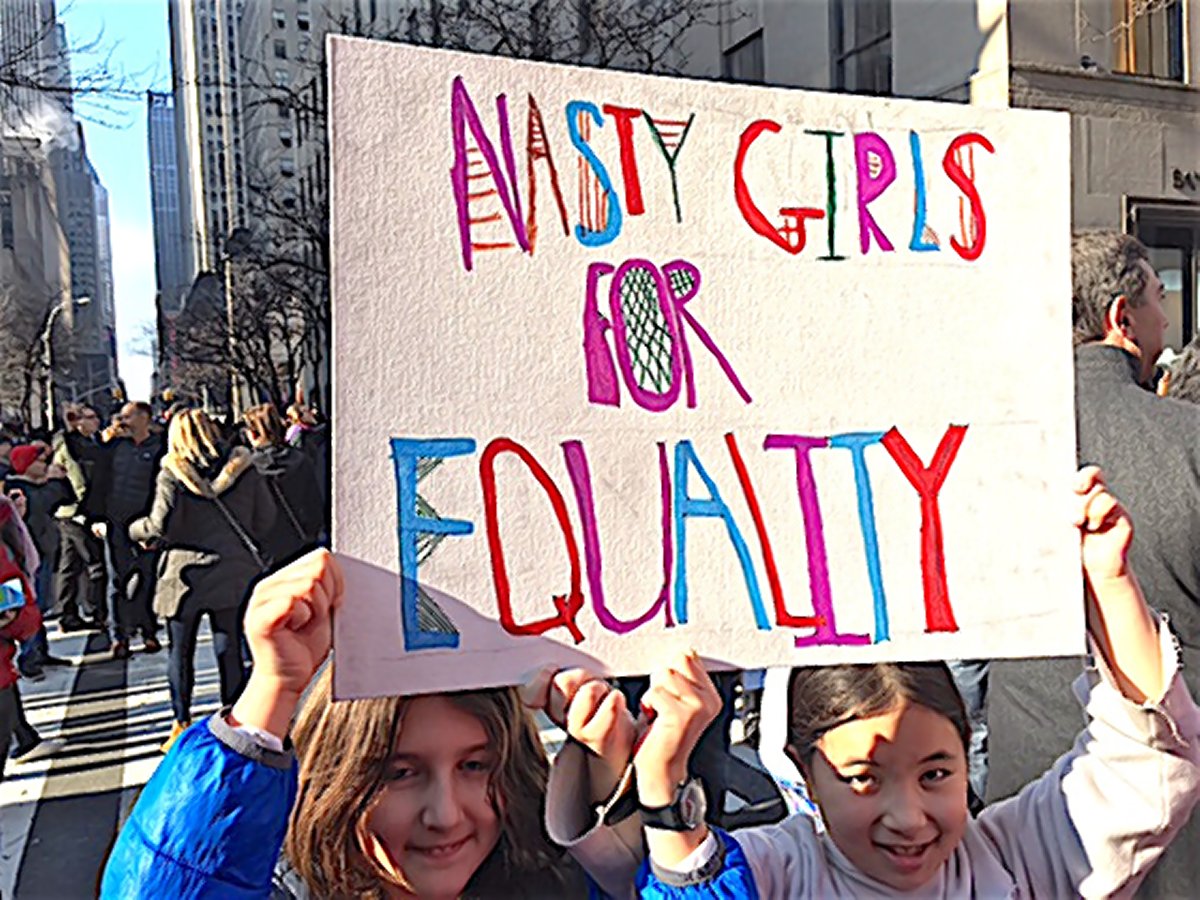
BY YUKIE OHTA | On Saturday, my daughter and her friend made a sign that read, “Nasty Girls for Equality,” and we marched proudly and loudly with the throng toward Trump Tower. I don’t think I would have taken part in the Women’s March had it not been for my daughter — and her school. I am not an activist. I am an archivist. I deal with documenting things that have already happened, not changing what will happen in the future.
Sure, I went down to Washington, D.C., in my youth to fight for a woman’s right to choose, but that was as much a social gathering as a political event for me. I have also made it my life’s work to document the activism of those who pioneered my now-gentrified neighborhood, Soho. Don’t get me wrong. I have a social conscience and try to make a difference wherever I can. I am just not an active activist. Or I wasn’t, until now.
Having a child changes everything. We want for our children the precious things we were denied in our own childhoods. My daughter is 8 years old, a third grader at LREI (Little Red School House), a progressive, independent school right here in the Village. Her school encourages student-initiated “courageous conversations” about race, class, gender, L.G.B.T. issues, and most recently, politics, among other thorny topics. Its emphasis on active, experiential learning gets the school’s students out into the world to examine and debate these difficult topics.
Some might say that the early elementary years is too soon to introduce social issues into the classroom. Social issues, however, are being played out in my daughter’s classroom and her city every day. In this age of mass media, she has seen and heard way more than I ever did at her age. Thanks to experienced teachers who are well versed in progressive curricula and the use of age-appropriate language, my daughter has learned to make sense of what she sees going on around her, and to engage with the world in ways I only learned to do…well…since she started school.
The school has not only welcomed my daughter, but our entire family, into its community. It has been edifying, to say the least, to be included as an equal partner in the shared goal of nurturing a future adult. Forgive me for my past complacency, but before my daughter entered kindergarten, I never gave much thought to my gender, race or class.
Being a woman of color who grew up as a member of the privileged poor, one would think that I would have contemplated these things a little bit more. But without a peer group that dwelled on such issues, I was not armed with the language to discuss with precision what I perceived to be the injustices in the world. I have now found the peer group and the words that I did not even know I lacked. I am thus able to hold up my end of the partnership, and for this, I am grateful. My daughter and I can now explore the world together. And when she is at school, I am comforted to know that she will be encouraged to explore further.
When my daughter graduates high school, she will be ready to make her mark on her community and the world because she will have learned to be an engaged citizen in her school, city and beyond. In his farewell speech, President Obama warned that our democracy is threatened because, as he said, “without some common baseline of facts, without a willingness to admit new information and concede that your opponent might be making a fair point, and that science and reason matter, then we’re going to keep talking past each other.”
I am confident that my daughter will grow up to be one of the willing. Her education at school and at home will lead her to make her own informed decisions, no matter her politics. If we teach children — and adults, like me — to be inquisitive, to think for themselves and to come to their own conclusions, we will ensure that our leaders of tomorrow embrace diversity in all of its forms and have the courage to bring meaningful change to the world. After all, isn’t that what we were marching for?
Ohta is founder, Soho Memory Project




